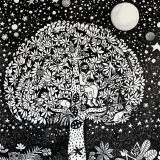The term of autonomy can imply many interpretations with different deviations from each other. This research studies a development of the meaning of autonomy and its practices, through writers, poets, economists and activists.
The constantly produced unequal spatiality of capitalism and the localization and classification of the social relations constitute challenging fields for social reconstruction and formation of alternative endeavors, where the multiplicity of activities turns into a field of producing space and practices of autonomy construction.
As we cannot understand autonomy as a fully formed stable identity, but as a permanent project of political spatiality -a permanent form of experimentation-, an approach is taken to the processes and ways of forming the practices that it may embodies.
The Zapatistas' self-organization practices formed around concepts such as horizontality, solidarity and ideas of the free community and the practices of their social co-production of material resources and social benefits that accomplish their self-sufficiency and self-preservation of their autonomic communities are being studied as a cognitive example.
Finally, the research analyzes the role of social communication in the development of the Zapatista autonomy and the practices of co-production and mutual learning between the natives and the international community, as well as the resonance of the Zapatista poetic language in groups and individuals on a global scale.
